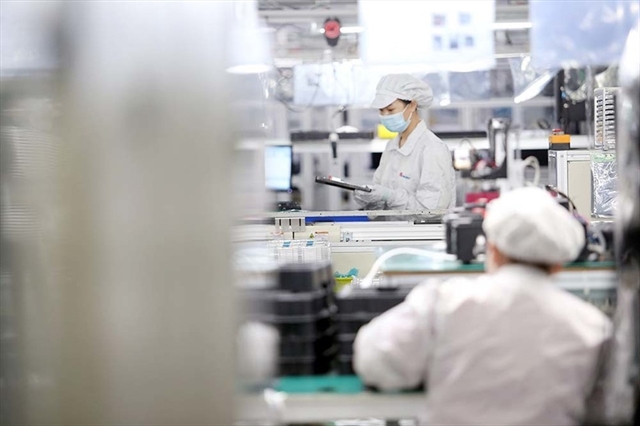
HÀ NỘI — Bắc Giang Province has changed its policies on foreign direct investment (FDI) until 2025.
The new policies aim to encourage high-tech projects using locally-produced components and materials, undertaking to transfer technology and employing local workers.
They are also expected to promote FDI in key industries including electronic components, computers, and electric appliances.
Electronic projects are aimed to cluster around industrial zones in Việt Yên, Tân Yên, Hiệp Hòa, Yên Dũng District and Bắc Giang City. Apparel industries are expected to centre around Sơn Động, Lục Ngạn, Lục Nam and Yên Thế District.
These industries will shift their focus from production to model design and distribution to add more value to products.
Mechanical industries are going to be located in Hiệp Hòa and Yên Dũng, whereas agro-forestry processing and food industries are situated in Hiệp Hòa, Lục Ngạn and Lục Nam, with priority given to vegetables and fruits processing projects that are export-oriented.
To meet the new policies’ target, the province has been taking various measures in favour of FDI including upgrading infrastructure, accelerating administrative reforms, improving provincial competitive index, and enhancing local human resources.
Additionally, six dormitories have been under construction in new industrial zones with an expected capacity for 80,000 workers.
As the province has become a green zone, it also plans to fully resume all socio-economic activities, except for online games halls and karaoke, from February 16.
The move is expected to help local firms to cut costs, recruit workers more easily and maintain stable operations amid the pandemic.
In January, total FDI poured into the province was around US$67.5 million, of which $2.5 million was the registered capital of two new projects and $65 million was the additional investments of seven adjusted projects.
In 2021, Bắc Giang was among the 10 most FDI-attractive provinces nationwide.
The province granted investment approvals to 23 new projects with total registered capital of $645 million and adjustment approvals to 51 projects with additional investments of $686 million.
Notably, Fukang Technology Factory, a project with registered capital of $453 million, has come into phase-1 operation with around $300 million disbursed. The phase-2 operation will kick in from Q2/2022 and Phase-3 from Q2/2023.
Meanwhile, a photovoltaic cell technology project invested by JA Solar Investment (Hong Kong) Limited with registered capital of $200 million is set to begin operation in Q1/2022. — VNS